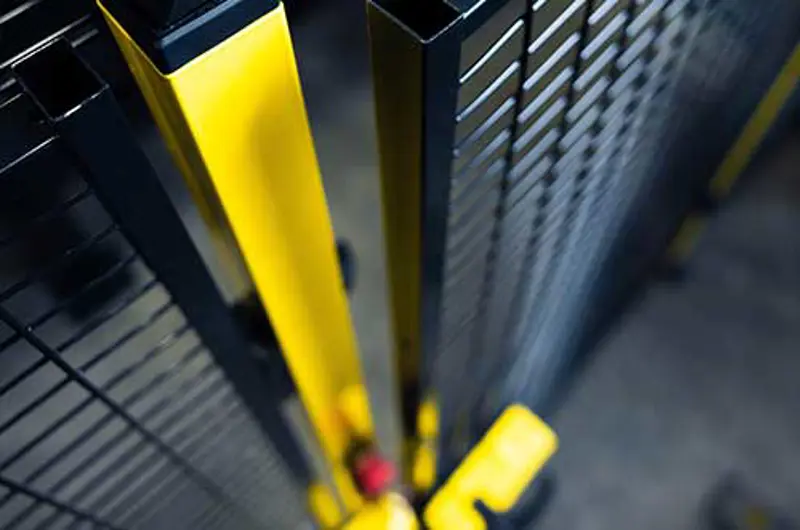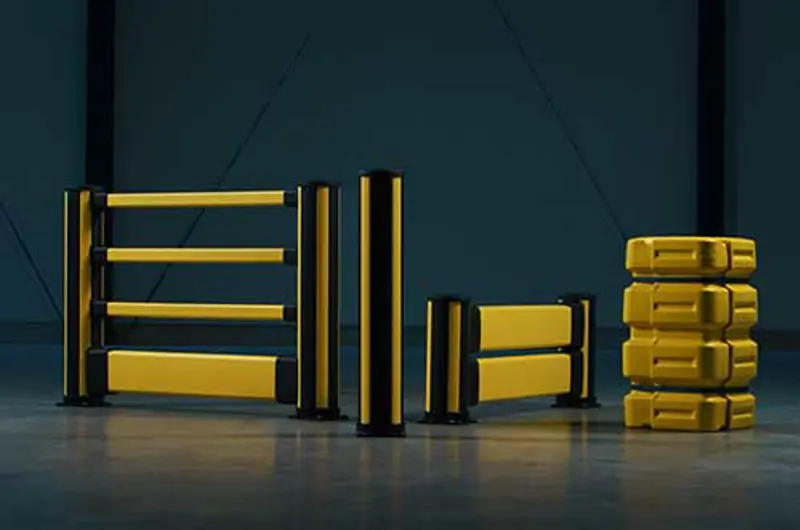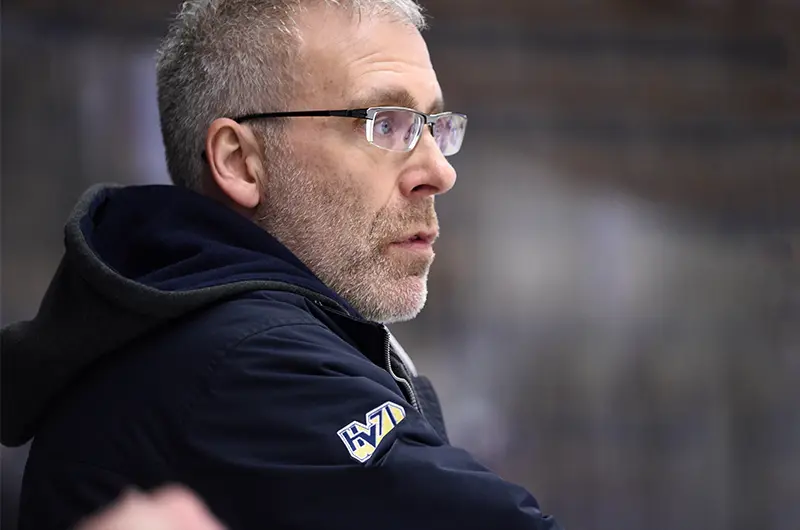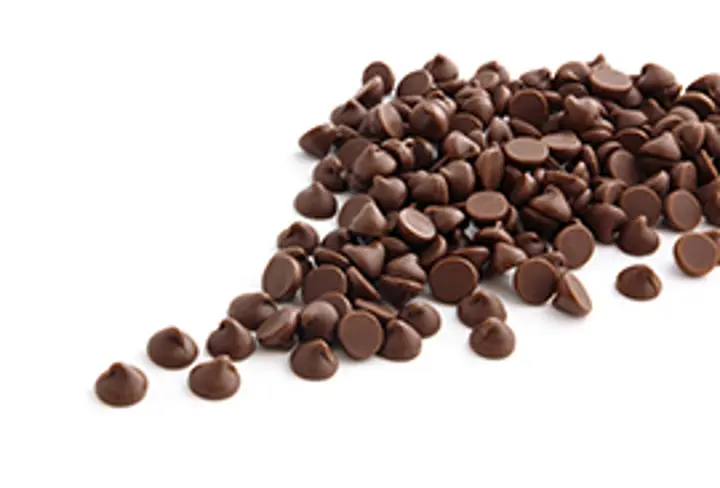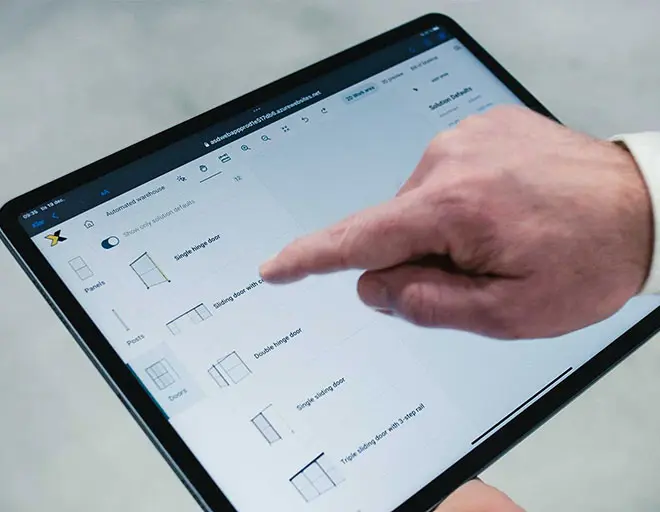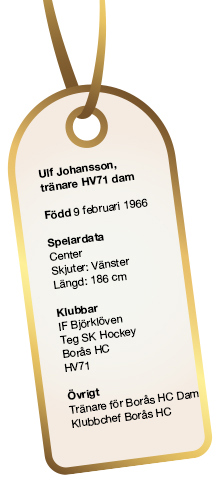
Are you affected by what the media says?
“The women's team is not as closely scrutinised as the men’s so we avoid the personal criticism. In truth I don't always have time to read it all, but I do my best to follow events. Negative criticism is always difficult to swallow as a player or a coach. You have to understand that as an individual you won’t always get it right. Sometimes players make the wrong decisions on the ice, sometimes we coaches get the tactics wrong or select the wrong players at crucial times. This could create situations where games are lost and a negative trend sets in, which affects everybody. In those situations you have to believe in each other and NOT be affected by what others say or think.”
What is it like to coach a women's team? Is it that much different to coaching a men's team?
“Yes, it's a lot different to coaching a men’s team. The hockey is basically the same, but the work in and around the team differs greatly, which probably applies to other sports as well. Of course it may differ from team to team, but generally speaking men's teams tend to just get on with it. Women’s teams question more and are a bit more ‘guarded’. The approach and language of the coach is different too, you have to have plenty of substance for the decisions you make and in the instructions you give the team.
Women are extremely sharp in analysis and implementation, which is part of the challenge of being a coach for a women’s team at this level.”
How do you feel about women ice hockey players not being able to live off their sport, even the ones who take part in the World Championships and Olympic Games?
“Naturally, I would love to see all our players get paid enough to allow them to dedicate more time to their hockey. I don't think that day is far off, in fact the breaking point feels very close.
We have one day off a week on average, we travel the length and breadth of the country and play 36 games, not including end of season playoffs. For this to work in the longterm, a change is needed that permits our players to work part time to allow them to focus on their ice hockey.
When we return from away games in the north, our bus rolls into Jönköping at 6:30 on Monday morning and the women go straight to their jobs. They return for training in the evening and a new weeks begins. On top of this we demand commitment and a good result in every match, which is strenuous to say the least!
However, I must say that HV71 has taken great strides in the development of women's ice hockey. They step it up a notch or two every season and the club has a sensible plan for the future, both long and short term. This steadily improves the conditions for the HV71 players.”
Do you run the risk of becoming a Redstockings feminist from coaching women? (The undersigned is not one but does sense the injustice when women and men players are interviewed.)
“Haha, no, not necessarily. Of course you can see the glaring difference between women’s and men’s ice hockey, but I don't find that at all surprising. You have to look at it objectively. Women's ice hockey is still in its infancy. I would say that women's ice hockey is still under development sports-wise and organisationally at association and club level. However unlikely this may seem, there are still clubs that don’t welcome women's ice hockey. But things are moving rapidly.
I believe that the forward strides made by many of the big clubs will bode well for the game and bring about rapid change. For me it is just unbelievable that there is still an ongoing debate about ‘housetraining’ women's ice hockey when we in the sport left that level a long time ago. Whether this has made us feminists I don't know, I just think it's basic common sense.”
How do you perceive the reactions of your surroundings to women's ice hockey?
“Only positive. As I said earlier, women's ice hockey is definitely on the rise and I think the public, media and sponsors all understand and appreciate our sport and the ideals and values it stands for.”
Women's football has been given a lift and a lot of media coverage. Is women's ice hockey next in line do you think?
“Most definitely. Here in Jönköping we’re seeing a massive increase in media interest. Radio, TV and the press. Social media is also doing its bit. It gives us a much wider audience, which is very positive.”
5 quickies
with Ulf Johansson
City or countryside?
City
Activity or relaxation?
Activity
Eat out or at home?
Home
Favourite place?
The sofa
Hidden talent?
I play the drums in a cover band
